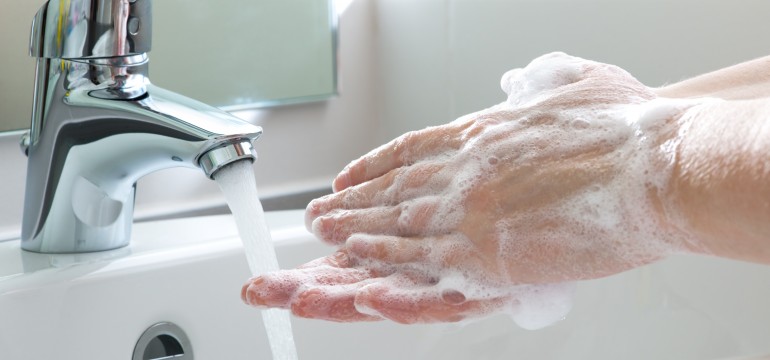A great way to prevent infections is through hand hygiene, since many serious infections are caused by pathogens spread through skin to skin contact. While described by many healthcare workers as the single most important preventive act against the proliferation of infections, hand hygiene isn’t always done right—even by medical professionals.
They are invisible to the naked eye, yet pathogens can lurk in every area of a home or a hospital. Keeping the hands clean is important as merely touching objects may initiate or spread infections, especially when these are contaminated with organisms like Salmonella, E coli O157, and norovirus, which can be found in human and animal feces. This is particularly important in settings where immunocompromised persons reside or are treated.
Image source: initial.co.uk
The concept of hand hygiene was first introduced by Ignaz P. Semmelweis, a Hungarian physicist. He found that when physicians washed their hands before delivering babies, deaths among postpartum women were prevented. At first, Semmelweis was ridiculed, but his observation was later on recognized to be true. Upon his observation, numerous studies were conducted that have confirmed the role healthcare workers’ hands assume in the transmission of pathogens in the healthcare setting.
Image source: labblog.uofmhealth.org
The World Health Organization has outlined the five moments of hand hygiene. These are: before patient contact; before aseptic task; after bodily fluid exposure; after patient contact; and after contact with patient surroundings. While hand hygiene concerns those in the field of healthcare the most, everyone is encouraged to keep their hands clean to prevent the spread of infections that are spread by people’s mundane actions.
Captain Martin Lloyd Sanders, Ph.D. is an officer in the Commissioned Corps of the U.S. Public Health Service. He obtained his degree in zoology from the University of California, Davis in 1990 and obtained his Ph.D. from the Department of Immunology and Infectious Diseases at the John Hopkins University School of Hygiene and Public Health in 1997. Learn more about Captain Martin Sanders by visiting this page.

